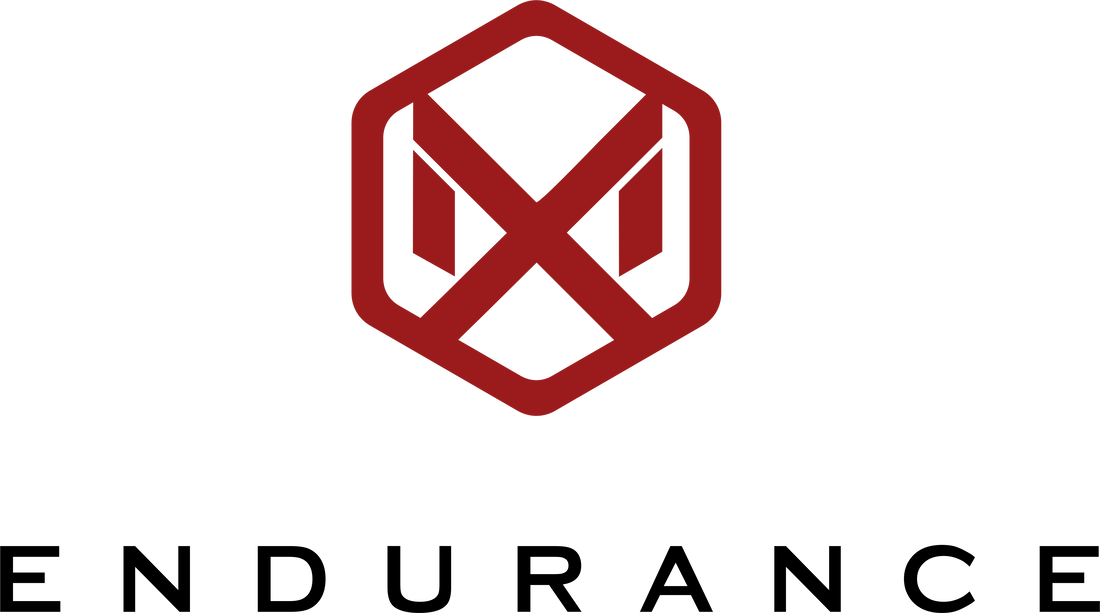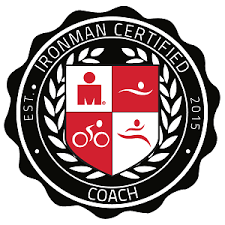|
Hi Everyone!
After a little blogging break due to a increase in uni work I am back to delight you with another post from the depths of my mind. I suppose after doing this for nearly 2 years I sometimes feel like I have written about nearly everything. But the beauty of my journey both in sport and in weight loss is that as I continue to grow and learn my opinion about things changes. As this blog is literally my thoughts written down it means that I generally write about that, my opinion. So the idea for this post came to me this week when I was delighted to see some speed return in the pool. I have been doing a hell of a lot of base training over the last few months which involves long sessions without a lot of intensity. I'm talking 3 or 4 swims a week and most of them over 5kms. This is great for building strength and endurance but for someone used to swimming fast it can be a little frustrating. Well yesterday I did my first proper sort of speed session. There was no limit on how far I had to swim. I just needed to do as many 100's as I could on a 1:30 cycle to get to 30x100. This is when you swim, stop and recover before going again all within a minute and thirty seconds. I managed to do 20 before taking a quick break with a recovery 100. In total I only had to do 3 easy 100's to recover. This also meant that for the first time in a long time I was starting to see my average pace creep towards that sub 1:20/100m I am looking for. Don't worry if you don't know what all these numbers mean. It is a case that I want to swim fast and haven't been and yesterday I swam faster than I have in a long time. So why am I telling you all this incredibly riveting (boring) story about my swim yesterday? Well because when I share my swim times with people the most common question I get asked is 'how do I swim that fast too'. While there are a number of answers specific to swimming such as technique, strength, body position etc there is an answer which is the one I always give. It is an answer which I feel is applicable to everything we do as humans in the pursuit of improvement. The answer I aways give is consistency. I am a faster swimmer now than I used to be because I swim at least 3 times a week every week. I ride faster than I used to because I ride at least 5 times a week. I lost 50kgs because I train and eat well consistently and I am getting decent marks in my law degree because I do all the readings and study for my classes every week. I am improving and getting better at things because I consistently work at them. See what I mean though? Think of a question about getting better at something and I reckon you could almost always answer it with consistency. I feel like I am going on about it but take diet for example. Fad diets are great for dropping weight quickly but if you want to keep the weight off permanently you need to consistently maintain healthy habits. There is no point in committing to a healthy regime for 12 weeks, seeing success and giving up only to undo all your hard work because you turn back to old habits. Even look at attitude. People who complain about being unable to train because they are too busy or too stressed. They are consistently focusing on the negative. Imagine if they forced themselves into healthy habits. Even something as simple as getting up an hour early or going to the gym for 45 minutes on their way home? By consistently being proactive instead of being negative they would be sure to see improvements. The funny thing is that I do not even find consistency hard. My lifestyle is based around my health. I still have commitments like uni and work but I am so used to consistently training now and eating properly that it isn't even an issue for me. The last two weeks I have been very busy with 2 large assignments to do. I even went to Melbourne for the weekend to celebrate my Dad's birthday. It would have been easy to skip my training or slip back into unhealthy habits but I didn't. In fact it wasn't even a matter of having to really work to make everything fit in. I got up earlier or opted to train in doors after dark too fit it all in. Because I have been doing this consistently for so long now it was easy. It was part of my routine. Christ, I feel like I am preaching a bit here about how good I am. That is not my intention. What I am simply doing is trying to demonstrate that for me, that consistency is what has seen me make drastic improvements in all aspects of my life. I was that guy who was too busy to train or cook properly. I was too busy at work and uni who didn't have time. That was until I wasn't. With sport this is even more important. Endurance sport is all about consistency. One of the things that frustrates me the most about other people is seeing them go too hard. There are some people who despite constantly being injured still do not seem to understand that they need that consistency. There is no point training like a mad-man above threshold for a week only to injure yourself and miss out on the next week's training. If you can aim to train, eat and live consistently you are more likely to improve. There are alternatives like 12 week programs or 2 hard weeks of training in a row which will lead to faster results or improvements. But I would suggest that those results are less likely to last than those which are slowly and safely earned over time. The saying 'it is a marathon, not a sprint' could not be more appropriate than to endurance sport. Focus on getting quality in over a long period of time and you will be going faster, keeping weight off longer and getting better results at work or uni than your counterparts who rush, go too hard or only work for short periods of time. Their model is not maintainable. At some point in the future they will burn out, lose motivation or undo all of their hard work. So to put it simply. You want to get better at something, do the hard work, don't look for shortcuts. Remember those words on your bottle of shampoo that is probably some of the best advice you will receive and simply 'lather, rinse, repeat. Be consistent, play the long game, don't rush and remember to TRI!
0 Comments
Hi everyone!
A big week for me with my training volume getting bigger and bigger. But also huge as I have been very lucky to introduce two special new bicycles to my life. My new Propel who I dubbed 'Nightwing' and my new Trinity TT bike who I picked up yesterday. I am extremely grateful to be partnering with Giant Sydney for all of my bike needs. My weight loss journey started on the back of a Giant bike. They are the only bike that I will ride. So the ability to work with a brand I love is a real honour for me. But for this week I want to talk about something which some people may think is a little deep. I am not meaning to offend anyone and I am not pretending to be the expert in this matter. In fact I may be completely wrong. This week I was listening to a podcast interview with a very good professional triathlete where they mentioned that they took some time off the sport and 'got fat'. I was thinking to myself that their idea of fat and my idea of fat are probably very different things. I then started to realise that this is an expression used by many athletes, especially triathletes, when they talk about any rest period they take. How often have you heard someone say "I have been injured for a month and man I got fat" or "I'm in my off-season, just trying not to get fat". I know at the start of this that I am also guilty of this. After a particularly large and delicious meal I have been known to complain to my wife that I think I am fat. The more I think about this I realise that this could be a serious issue. Something that we all should try and stop doing. Why? Well imagine if you are someone who is lean and in good shape. You put on a few extra kilograms and start referring to yourself as fat. Now imagine you are someone who is overweight. Who struggles to lose weight. This may be because you have health issues or struggle with diet or a whole list of reasons which are unique to every individual. If they hear someone who society would define as healthy and in good shape referring to themselves as fat, how will they feel? I am not waving the flag as the voice of the overweight here! Don't imagine some scene from Le Miserables with me carrying the flag and leading the overweight people of the world to revolution (all while singing a catchy tune). I have never even had an overweight person complain to me about this issue. It is just something that happened when I was listening to the podcast. When I heard this person talk about how fat they got I commented to myself 'yeah right'. I may even be accused here of being overly sensitive and a little too obsessed with being politically correct (two things which I have never been guilty of). It is however an issue which I feel should be discussed. I go on about this all the time but triathlon, and most endurance sport is inclusive. People want to bring others to the sport and grow it. We often cheer each other on and offer encouragement to other competitors on course. This tendency to refer to ourselves as fat however is terrible. Some hard truth is that a large percentage of any triathlon field is overweight. Like society there are people of all shapes and sizes who compete. I know, As I have gone through my own weight-loss I have completed many different races at a whole range of different weights and sizes. Currently I am very lean and this is because I am careful with what I eat and I train very hard. But this does not give me the right to start declaring myself as fat when I put on a few kgs. It is actually a form of indirect bullying. You may not be calling other people fat or overweight. But by saying that you are fat, what are you saying about those people that are bigger than you? You are indirectly suggesting that they are also fat. I understand that there is probably zero malice or ill-intent meant by this. In fact self-deprecation is particularly common in Australian culture. The whole idea of 'tall poppy syndrome' means that many Australian's and I am sure other cultures around the world are incredibly uncomfortable with being praised or celebrating their success. So to shift the focus from our positives we choose to highlight our negatives. There is also the strong possibility that I am completely wrong. I am not offended when pro athletes complain about having a shit day and they are still significantly faster than I am. I do not take that personally because I know that they have worked hard to be where they are. But I think weight is something different. I have learned the hard way that it is an extremely sensitive topic which in many ways is actually becoming taboo. People do not like to talk about weight. The perfect example of this is my family. I never had anyone comment on my weight when I weighed over 120kgs. But the other day I jumped on a scale and was 69kgs. All of a sudden my wife, my mother, my father and my granddad all start asking if I am ok or telling me that I need to be careful. I have said this before but it is almost like it is ok to tell someone they are too skinny but not ok to tell them they are too big? So if that is the case, maybe we all need to be a little proactive in which words we use to describe ourselves. I think this is extremely important for the professional athletes out there. You might be a little heavier than your ideal race weight but to the vast majority of age group athletes you are still lean and ripped and ready to go. If like me, you want to grow the sport of triathlon I think it is important that we remain as inclusive as we possibly can. I also feel the need to explain, I am not the most politically correct person on the planet and I know that while I am writing this I need to work on it myself. One of my jobs is weight loss coaching. Obviously I work with people who are bigger than me. I am mortified to think that I may have referred to myself as fat in front of them. But the reality is I may have. Not because I am making a comment on their weight but instead because I am too focused on myself. I also think that weight is something that we all need to talk about more. Sometimes I am worried that I may be developing some seriously unhealthy issues around body image. I think for me personally, it is slowly becoming better. I am no longer so focused on the negative aspects of my body that I am unable to see the positives. I also think that I may finally be adjusting to my new size. For years, I have still felt like I was in an overweight body. If you have never been overweight you may not understand what I mean but I feel like you are so used to being a certain way that your mind can't compute the changes. But I am now coming up on 5 years since I lost the majority of my weight and it is finally (yes after 5 years!) starting to sink in that this is how I am now. So I will make a promise to stop referring to myself as fat even though there are days when I know I am going to feel it. I also hope that other people, whatever your size or shape, will stop doing it too. You know what? You may be overweight or you may feel fat. But by putting yourself down and focusing on the negative you are doing nothing other than hurting yourself (or others). Focus on the positive. Come try a sport that is inclusive where the top athletes will share the course with the slower athletes and everyone is out there to chase their own goals. The reality of triathlon is that the skinnier you are the more likely you are to go fast. We all know that the lighter you are the faster you are able to run. We all know that if you can get your weight down, your watts per kg will go up meaning that you should ride faster too. In many ways, triathlon is a sport obsessed with being skinny. This may be the reason that there are so many other athletes in the sport who like me, have lost weight through the sport. The more people I meet and the more of their stories I hear, the more I love triathlon. But just be aware that while some people are obsessed with going faster and faster (I will put my hand up here), all this talk about needing to slow down, get to race weight and getting fat in the off season may create a barrier to entry for many other potential future triathletes. Let's be encouraging to other people but lets start by being encouraging with ourselves. Lets stop talking about being fat. Lets talk about being active. I hope you understand where I am coming from this week. I want to start a conversation that I feel we may not even be aware we need to start. But I would love to get your opinion. Are you someone who who is guilty of saying this? Or are you someone who has felt put off a sport by this sort of thing? Let me know in the comments. Anyway, have a great week, make the most of the warm weather while it lasts and remember to TRI! I am nervous even thinking about writing this post because I know how many people are likely to start carrying on about their food choices. I know and you know who you are so just don't. This is simply my account of my experience with the diet and I am not saying it is recommended or not. I am not saying it is good or bad. I am not saying anything other than how I found it. So with that in mind lets get into it.
So I listen to IMTalk and one of the hosts John Newsom was experimenting with a LCHF diet. I have heard so many different things about what impact this has on your body. Me being the curious foodie thought there was no better way to make a decision than to try it myself. I made the suggestion to Dez that we try it for four weeks and she was right on board. We set our menu for the week and decided the goal was to keep our daily carbohydrate intake to under 50g a day. I thought this would be relatively easy. I was wrong. At first I assumed all I would really do would be to minimise the amount of toast and cereal I would eat. I downloaded my fitness pal and started inputting everything I ate or intended to eat. Going into the plan I knew I would feel a bit rough for the first few days/weeks but would eventually start to feel better. I feel it is necessary to state here that I was not doing this diet to lose weight but instead I wanted to see if the claims that you could train/race harder without relying on food were true. Truth be told I do most of my training on an empty stomach and without food anyway. The first few days the food was relatively easy to stay on top of. The first speed bump I hit was when I realised that if I had a soy coffee which is my favourite thing in the world it would throw my daily carb intake out the window. Great, this four week experiment already was causing me some issues. In fact as long as I stayed at home I found it quite easy to stay under the 50 grams of carbs. It was as soon as I started to try and source food outside that I struggled. I know there are plenty of options if I really want to but I was shocked at how carbs are basically in everything. I couldn't even eat too much fruit. I do not actually think it is too hard to source LCHF food. I am more commenting here on how you don't realise how much sugar there is in so many of the things that we eat. More and more often I found myself eating meat and eggs. Then there was my training. Again, going into this I expected it to be hard and to have an impact on my training. Well as I wrote about last week, I bonked on my Wednesday ride. This is a ride that I do at least twice a week and have never had an issue with before. I knew this would happen at the start and I am not saying it is a negative consequence of the diet. Other than feeling a little flat I actually got through all of my training and even did a surprisingly fast run on the Saturday morning. I was also extremely happy that my protein supplement from True Amino did not have a significant amount of carbs in it so using it was no problem at all. The biggest surprise for me was how quickly I lost weight. Within a week I had dropped over 4kgs. Anyone who knows anything about weight-loss know this is not a healthy level of weight loss. People told me this is normal as it is mostly fluid that the body is dropping. While I knew it was a little crazy I have to admit I enjoyed seeing my abs make a reappearance. Dez also had dropped a few kgs and was pretty happy about that. Maybe one of the biggest errors I made with starting this diet was starting the week of Easter. On Friday I went up to visit my Mum for lunch. My Mum, much like other people's, is always sure I am too skinny or not eating enough or not eating the right way. So when I told her that me and Dez were trying this diet (and clearly explaining it was an experiment and temporary) she had some concerns. She cooked a meal for us we could eat but there were a number of comments made. It is actually the thing I noticed the most. As soon as you would tell someone that I was trying the LCHF diet they would have a very strong reaction either way. Some people who had either tried the diet or heard about it would tell me about their experiences. The other camp however, carb enthusiasts lets call them, would become quite aggressive. Almost getting angry about it. Some people could not believe I was doing it and tried to explain to me why I should not do it. I am still baffled as to why people are so opinionated by what people eat. Some of my friends were using any opportunity to give me a hard time about not eating carbs. Almost rubbing it in my face. Weird hey? At no point ever was I telling people to do what I was doing. I was simply trying something to get my own opinion. Needless to say from the title of this article, I did not last the four weeks. I gave up after 9 days. Why? It certainly wasn't because I felt sick or weak or anything like that. It was a much more personal reason. I love carbs. I eat pretty well. I rarely eat take away food etc. But telling me I could not have carbs meant that instead of missing the things I usually ate I became obsessed with them. I was getting cranky because all I wanted was to eat pizza and hamburgers and bacon and egg rolls. By saying I could not have carbs they became the only thing I wanted. I also like to eat meat, just not all of the time and I also found myself relying on meat a bit too much. It was the easiest way to eat LCHF for me personally. But this diet was literally impacting on my mood. I was like an addict. All I wanted was a sweet hit of carbohydrates. Like a madman. One of the biggest messages about food and diet which I try to promote is that when it comes to a diet if you can's see yourself doing it for the rest of your life then you will fail and shouldn't do it. So I chose to follow my own advice. There was no way I was going to be able to continue this diet and for what? To write about it in my blog? When we decided to go back to our regular way of eating I instantly felt at ease. I am still keeping an eye on the carbs that I eat. I am trying to keep them to a minimum at night but I am not having crazy cravings or mood swings. So what were my key learnings from this little dabble with LCHF? I lost weight very easily. This isn't really too big a surprise. I am able to drop weight very quickly when I set my mind to it. I could not give an opinion on the benefits of it on my training as I simply did not give it long enough to experience the benefits .I also learnt that I could quite happily be vegetarian. I am not going to go vego (calm down everyone) but I am extremely fond of vegetables these days. Who would of thought that was possible when you consider that old fat Tim did not touch them at all. The other thing I learned which I already knew but had it really re-enforced was how protective people become of their eating habits. I do not understand why people need to try and convince others that their way of eating is the best or right way. I do not actually care what other people eat. I may have issue if you are eating KFC everyday. But honestly I do not mind if you are paleo, LCHF, vegetarian, vegan, or anything in between. It is entirely your decision and as long as it doesn't make it too hard for me to spend time with you by having to cook several different meals when friends visit knock yourselves out. It actually isn't that important to me and I do not create my impression of a person based on what they do or do not eat. Will I try LCHF again? Maybe. I may try it again in the future but I would really need to develop some better systems to deal with it. I was honest to god out of control. I never realised how much I enjoy, not need, but enjoy eating things like toast and cereal. I train bloody hard and if I want a slice of toast with peanut butter I am going to have it. I said it at the start too. Most of my training is fasted. I never take food or nutrition with me when I train. It wasn't out of some desire to develop the ability to train on an empty stomach. It was mostly out of laziness. I do not like to have stuff in my pockets. As a result of this I find that I am able to run or ride for a long time without any nutrition. So there we go. I tried and failed to adapt to a LCHF diet. Not because there is anything wrong with the diet but instead because it simply was not something that I want to do. I know that there are many people who successfully live this way just like there are many who rely heavily on carbs. Whatever your choice it is exactly that. Your choice. Have a good week, enjoy a feed and remember to TRI! |
TimI lost 50kgs though triathlon and completed the 2016 70.3 World Championships. Aiming to hit 4:05 for a 70.3, the same time it took me to complete my first Olympic Distance Triathlon. I want to bring as many new people to the sport as possible. Whether you are fit and active or want to make positive changes to your life. Archives
July 2020
Categories |
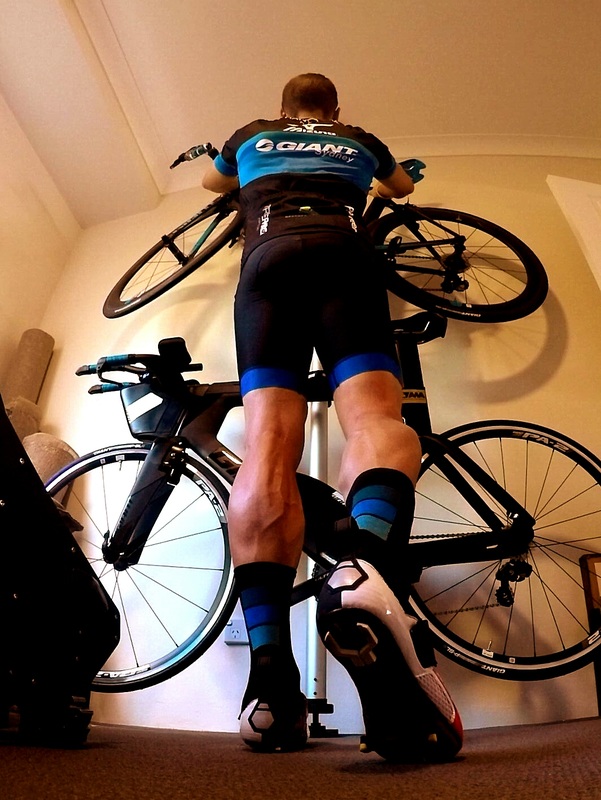
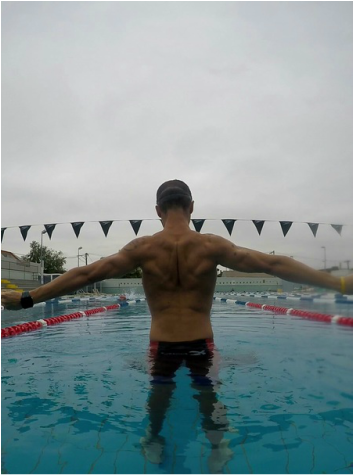
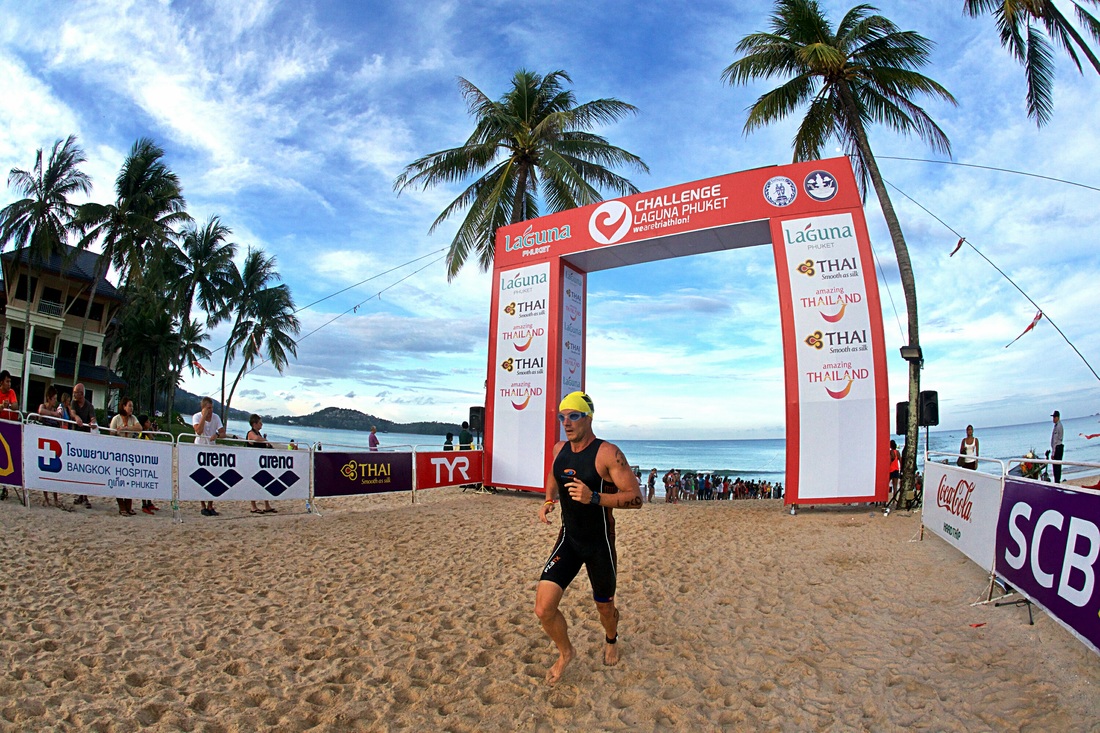
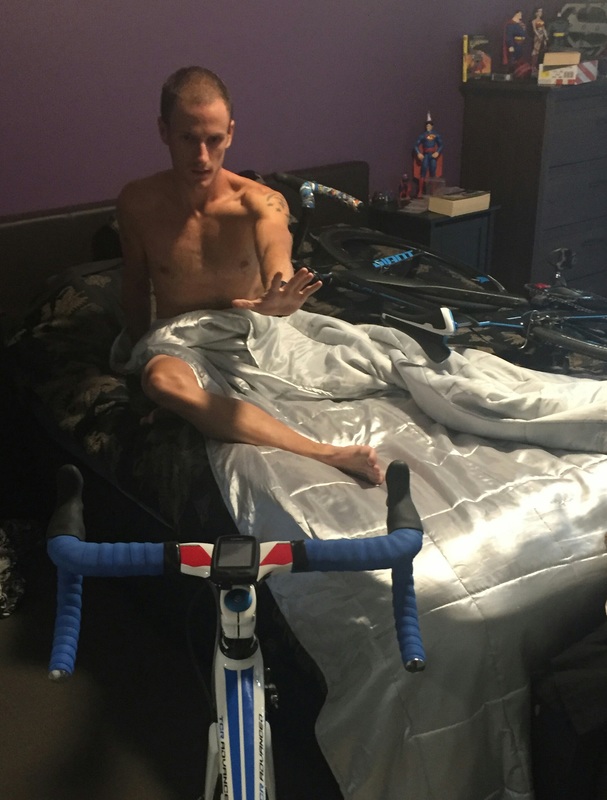
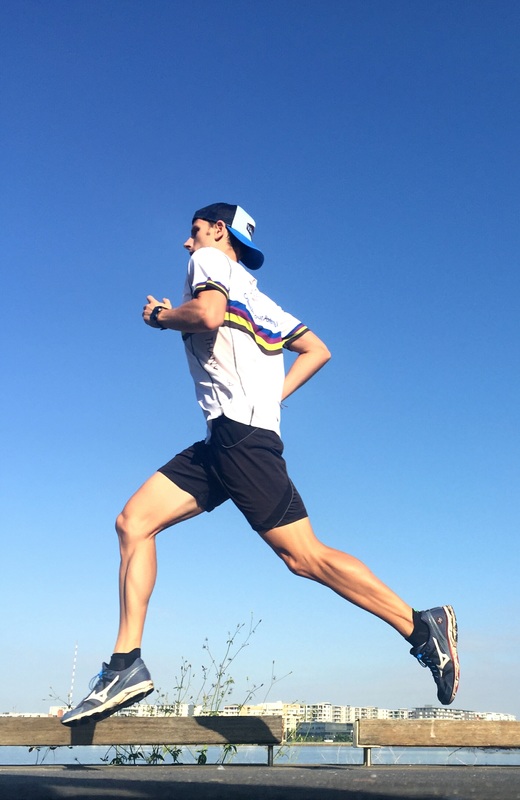
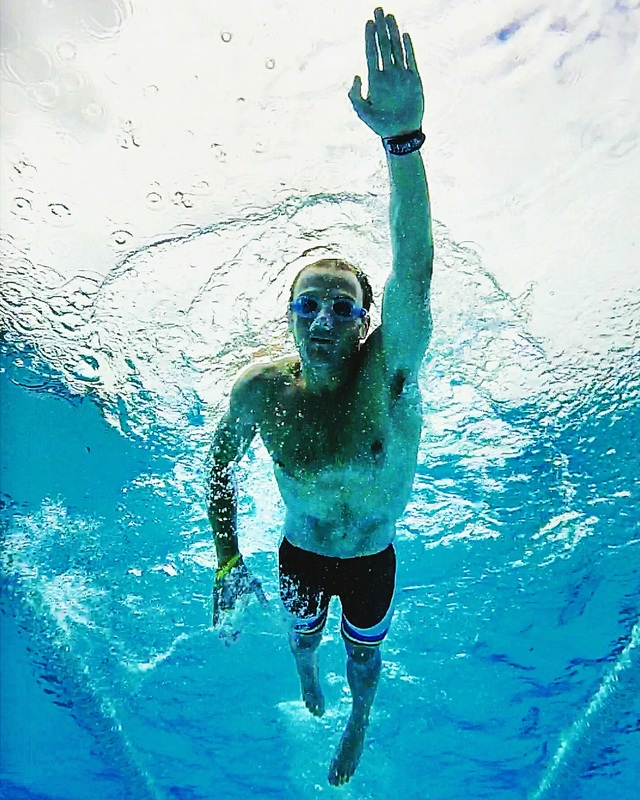
 RSS Feed
RSS Feed

